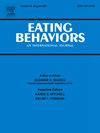Examining adverse life experiences, disordered eating behaviors and cognitions and weight loss treatment in Peru
IF 2.4
3区 医学
Q2 PSYCHIATRY
引用次数: 0
Abstract
Objective
Studies conducted in the US indicate that exposure to trauma, and stigma related to weight are environmental factors associated with the development of disordered eating. Few studies have explored psychosocial and contextual factors surrounding disordered eating in Latin American populations. This study examined everyday discrimination, verbal weight-related abuse, adverse childhood experiences, and disordered eating across individuals seeking versus not seeking weight loss treatment in Peru.
Method
Participants (N = 420) were recruited via social media and a weight management clinic in Peru. Participants completed disordered eating, everyday discrimination, verbal weight-related abuse, and adverse childhood experiences measures.
Results
The weight loss treatment seeking group showed greater disordered eating behaviors (dietary restraint) and cognitions (body dissatisfaction, overvaluation of shape/weight) compared to the non-weight loss treatment seeking group. Increased experiences of everyday discrimination, adverse childhood experiences, and verbal weight-related abuse were associated with greater levels of disordered eating behaviors and cognitions in both samples. Weight loss treatment seeking status was not a moderator of the relationships among disordered eating behaviors and cognitions, and everyday discrimination.
Discussion
Results suggest discrimination, adverse childhood experiences, and verbal weight-related abuse are associated with eating pathology, and more disordered eating and behaviors are seen in individuals seeking or engaged in weight loss treatment. Findings highlight the importance of evaluating eating pathology for individuals reporting, or at high risk for discrimination, childhood trauma or weight-related abuse.
考察秘鲁不良生活经历、饮食行为和认知紊乱以及减肥治疗
在美国进行的研究表明,暴露于创伤和与体重有关的耻辱是与饮食失调发展相关的环境因素。很少有研究探索拉丁美洲人群中饮食失调的社会心理和环境因素。这项研究调查了在秘鲁寻求和不寻求减肥治疗的个体之间的日常歧视、体重相关的言语虐待、不良的童年经历和饮食失调。方法通过社交媒体和秘鲁一家体重管理诊所招募参与者(N = 420)。参与者完成了饮食失调、日常歧视、体重相关的言语虐待和不良童年经历的测量。结果寻求减肥治疗组与非寻求减肥治疗组相比,出现了更多的饮食行为失调(饮食限制)和认知失调(身体不满意、身材/体重高估)。在两个样本中,日常歧视、不良童年经历和言语上与体重有关的虐待的增加与更严重的饮食行为和认知紊乱有关。寻求减肥治疗的地位并不能调节饮食失调行为和认知以及日常歧视之间的关系。讨论结果表明,歧视、不良的童年经历和体重相关的言语虐待与饮食病理有关,并且在寻求或从事减肥治疗的个体中可以看到更多的饮食失调和行为。研究结果强调了评估个人饮食病理学的重要性,这些人报告或有遭受歧视、童年创伤或体重相关虐待的高风险。
本文章由计算机程序翻译,如有差异,请以英文原文为准。
求助全文
约1分钟内获得全文
求助全文
来源期刊

Eating behaviors
Multiple-
CiteScore
4.20
自引率
3.60%
发文量
65
审稿时长
60 days
期刊介绍:
Eating Behaviors is an international peer-reviewed scientific journal publishing human research on the etiology, prevention, and treatment of obesity, binge eating, and eating disorders in adults and children. Studies related to the promotion of healthy eating patterns to treat or prevent medical conditions (e.g., hypertension, diabetes mellitus, cancer) are also acceptable. Two types of manuscripts are encouraged: (1) Descriptive studies establishing functional relationships between eating behaviors and social, cognitive, environmental, attitudinal, emotional or biochemical factors; (2) Clinical outcome research evaluating the efficacy of prevention or treatment protocols.
 求助内容:
求助内容: 应助结果提醒方式:
应助结果提醒方式:


